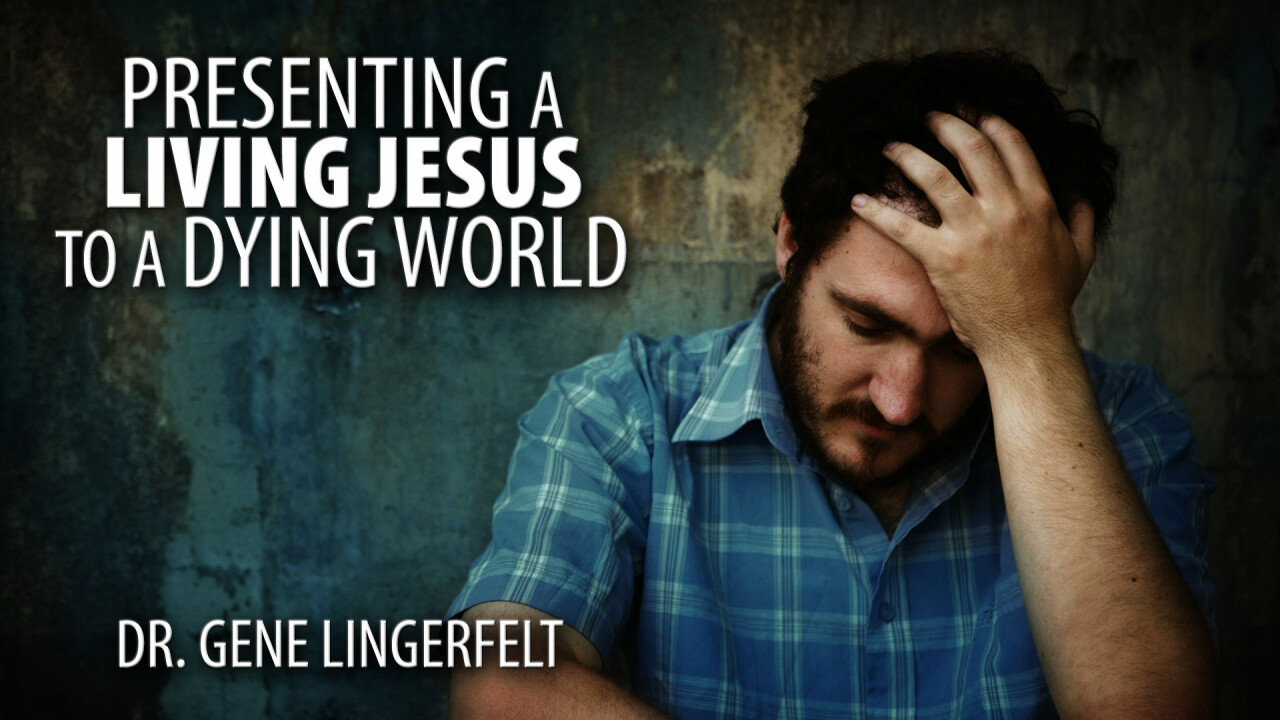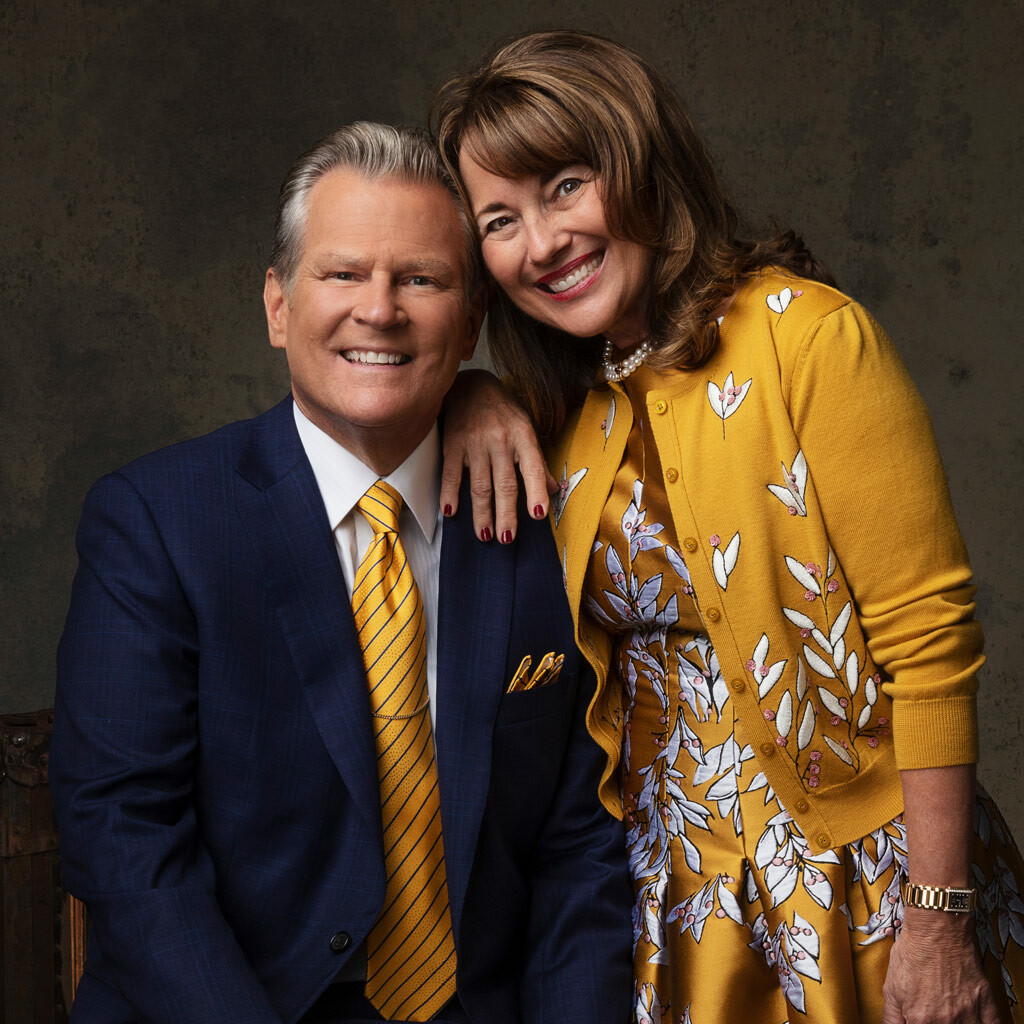
This article originally appeared in Ministries Today magazine in the January/February issue of 1991.
As we begin the 1990s, I believe it is pertinent to ask, "Which Jesus are you presenting to your community?" You may ask, "Which Jesus? Isn't there only one?" No, there are many varieties of Jesus being presented to our world today. Catholics present an insignificant Jesus, lost in the mythology of Mary and the saints. The mainline churches present a compromised Jesus, a partner to abortion on demand and communist revolutions in Central America. And most surprising of all, the pentecostals present an undependable Jesus, powerless to make His Word work consistently.
Six years ago my wife and I pioneered the Cathedral of Praise of Arlington, Texas (now Faith Christian Center). Our first service was on Sunday, January 1, 1984. Prior to pioneering our present work, God blessed us with a wealth of experience. We had worked on a local church staff for five years, lived and worked in Kenya as missionaries and had travelled America together doing marriage enrichment seminars.
What we had seen and experienced in the ministry, both stateside and abroad, troubled us. What we saw were dead churches with no answers to real-life problems. What we saw were churches in competition, not with the world, but with each other.
When we pioneered the church in 1984, I was determined to pattern our church after the one I grew up in--Bethesda Missionary Temple of Detroit, Michigan. Charisma magazine has documented Bethesda as being one of the two leading churches in the early days of the charismatic movement, and I had the privilege of being there. Even back in the sixties, I remember as a young boy that the church was packed every Sunday. And even back then the sanctuary sat over 2,000 people, not counting children's churches and nurseries. Bethesda was fully integrated racially and with people of many denominational backgrounds.
From my childhood I remember worship services which were alive and exciting. I remember pastors and guest ministers who were full of fire and zeal for God's Word and God's righteousness. Of all the people in the congregation, I most often think of a beautiful young woman in her late twenties. Why do I remember her? Because in all those years at Bethesda, she was the only person I ever remember the church praying for who died.
On the contrary, so many people we meet in the ministry today have lives filled with disappointment. As a child I was raised to expect a miracle. We were taught that the God of Abraham, Joseph, David, Daniel, Peter and Paul is the same God we serve today.
Those early youthful days were suddenly brought to an end when at the age of thirteen my family moved to another city. Suddenly, there wasn't a charismatic, faith-oriented church to attend. Suddenly, the only choice was between various denominational "full Gospel" churches. And it was in their peculiar world that I was taught that God heals only sometimes, that the Word is undependable, and that God is totally unpredictable.
We saw this attitude at Bible college, we saw this spirit in the church in which we labored and most worrisome of all, we saw this doctrine propagated in missions overseas. We longed for the God we were introduced to as children. We longed for more.
Today, my wife and I pastor a church that has become known in the Metroplex as "that church." "That church" where they lay hands on sick people. "That church" where they anoint people with oil. "That church" where they have a banner on the side of the building which reads, "JESUS IS HEALING THE SICK." And along with this reputation has come controversy, exacerbated by the fact that after our first four years, we moved from a hotel ballroom into a brand new, twenty-three thousand square foot facility which seats 1,000 people right on Interstate I-30, the main expressway between Dallas and Fort Worth. More than one hundred, forty thousand automobiles pass our building and our banner each day. Down the expressway, we have a 14 by 48 foot billboard exclaiming, "JESUS IS HEALING THE SICK, NEXT EXIT."
Now you would think that Catholics or mainline protestant ministers or their church members would be the ones to make fun of our banner and billboard. You would think the world would scoff. But we have found that we have become the ridicule of the denominational, "full Gospel" people whereas to the lost and the dying, we have become their hope.
On a weekly basis, people with no hope flood our services. Some have never been to church before. Others have been every Sunday for years. Yet, they come to us. They come to us with sick babies. They come to us with "terminal" diseases. They come to us with drug and alcohol addictions. And to all of them we give the same real-life, contemporary answer--Jesus. Jesus who is alive. Jesus who is predictable. Jesus who is the same yesterday, today, and forever!
One of our leading young men, a CPA with an international firm, was being ridiculed about our banner one day at work by a pentecostal fellow. Finally our young man asked, "Just what does your Jesus do?" And that is also my question, posed to you, as the 1990s begin. Just what does your Jesus do?
We live in a society where men hooked on pornography go out and rape little girls. Your Jesus had better be a Jesus who sets those in bondage to wickedness free. We live in a society where men and women can't seem to hold their marriages together. Your Jesus had better be a Jesus who dwells in and heals homes and marriages. We live in a society where modern medicine cannot solve the scourges of cancer and aids. Your Jesus had better be a Jesus who heals the sick. We live in a society where alcohol and drugs have taken over the schools, the work place and the highways. Your Jesus had better be a Jesus who delivers the oppressed. Now, of course, this is assuming that you want to be relevant to your community.
So many pastors want their churches to grow, but their Jesus is just not relevant.
Recently a young mother testified in our morning service that she had never really made a commitment to Christ and stuck with it. Her husband wasn't supportive, and she had used that as her excuse. But one day she tested positive for cervical cancer. In her need she came to the church, and our workers prayed for her. Her next test came back negative! "There must be some mistake," the doctor said. "No mistake," she replied. "I've just given my life back to God." Today, she and her children are faithful Christians.
As a church we have forsaken what I call the "maintenance ministry" of prophesying over each other in home fellowship groups, singing to each other in church services and fighting with each other over who gets to be up front next Sunday.
We are training our people to see the Christian experience as revolving around the world in which they live, rather than in the building where they gather for celebration and training in warfare. The modern church has camped out in the mess hall and they dare to call themselves warriors. We are training our people through "Fire Institute" (our version of boot camp), "Fire Teams" (discipleship training for males who dare to call themselves men) and pro-life rallies at abortion death mills. In everything we do, we teach our people to be militant, not religious. In everything we do, we teach our people to present the living Jesus to a dying world.
The results are exciting. In six years we have pioneered thirteen churches in six countries. In the first ten months of 1989, the people of our fellowship led over 1,100 people to Christ. We hear of co-workers asking for prayer in the work place because they know our people go to "that church."
We use this same strategy in pioneering churches in the Third World. Denominational people are absolutely amazed that we can pioneer a viable church in four days of crusade meetings. An example of "viable" would be the two churches we pioneered in Zimbabwe in 1985. With only a total of eight days of crusade meetings, we pioneered two churches. Without any further financial support, these two church have multiplied into four churches.
How do we do it? By invading a city with the healing and delivering Jesus. We preach the Gospel--always out of the four Gospels and always about the healing Jesus. Then we pray for the sick. We tell them that if what we have said is true, Jesus will heal the sick. And if what we have said is a lie, then nothing will happen. We lay hands on those who come forward, then we have them share with their own lips the healing that has come to them through Jesus. Then we give the altar call for salvation. We have discovered that an altar call without the miraculous is powerless.
During our second crusade in Vera Cruz, Mexico, a woman I didn't recognize got up and testified how she had been prayed for in our first crusade. She said her belly had been so full of tumors that she looked pregnant. The doctors had opened her up and had said that there was no hope. She came to our meeting and found hope in Jesus. The tumors disappeared. Her bloated condition left. Even the doctors said it was a miracle.
Now when someone gives this kind of testimony, you don't have to worry about generating enthusiasm in your services, and you don't have to worry about follow-up. The people just come--and they come excited!
Remember, religions all worship dead people. Only Christianity worships a living God. And a God who is alive ought to be able to do something TODAY!
Our goal is to emulate the church of Acts as closely as possible. That church presented Jesus the healer and Jesus the deliverer, not just Jesus the savior. The church of Acts was militant in its zeal for the honor of God. The church of Acts closely guarded its integrity. The church of Acts was holy and the Spirit allowed no deception there. The church of Acts was full of the Spirit of God, full of the life of Jesus, full of salvation, healing and deliverance for all who dared to believe.
The church of Acts was a persecuted church. That persecution was not the result of their putting people to sleep on Sundays or fighting like ungodly pagans in church business meetings. No, they were persecuted for healing the sick, causing the lame to walk and for casting devils out of little girls.
Can you dare to be this kind of church? Each of us must ask: Can we dare to present a living Jesus to a dying world?

